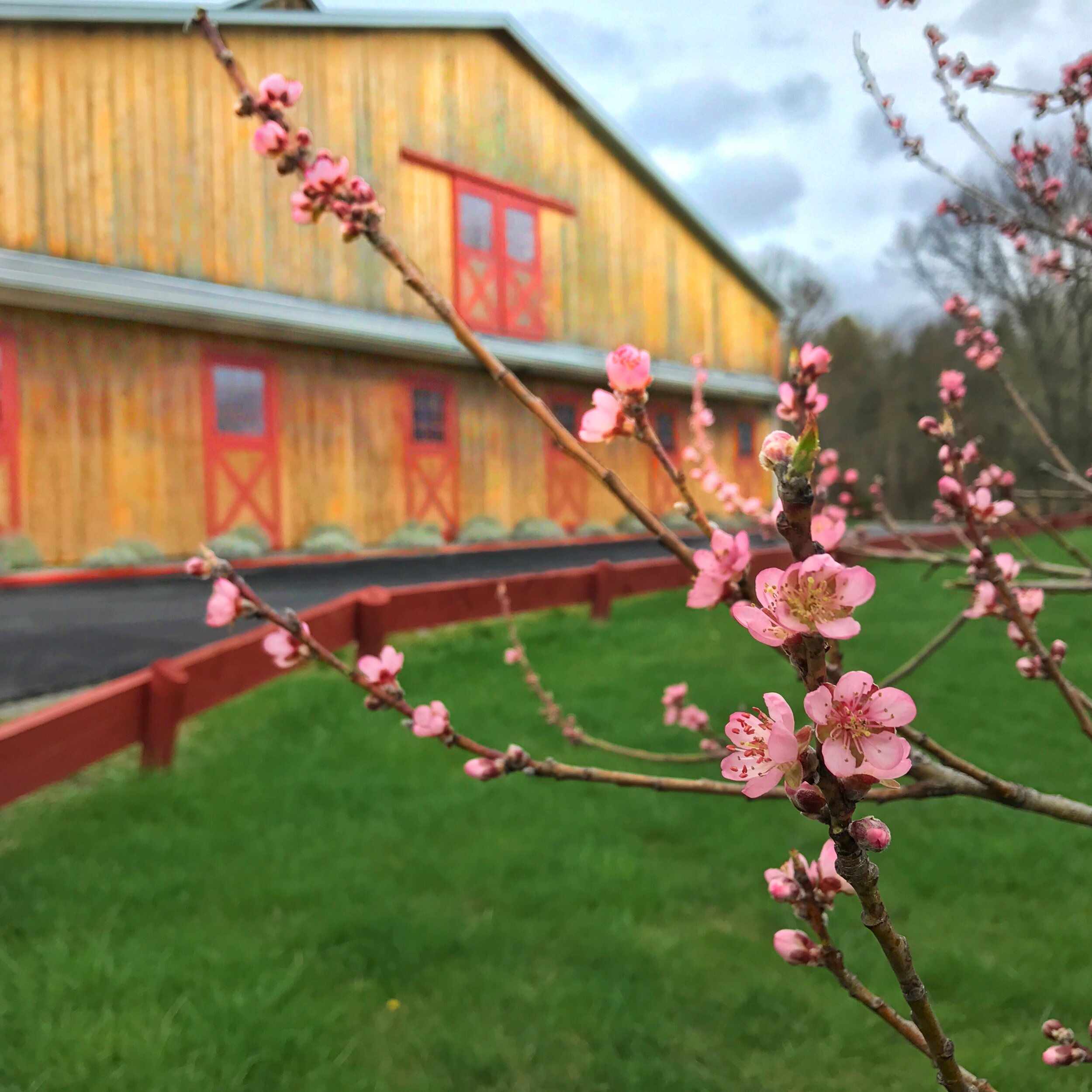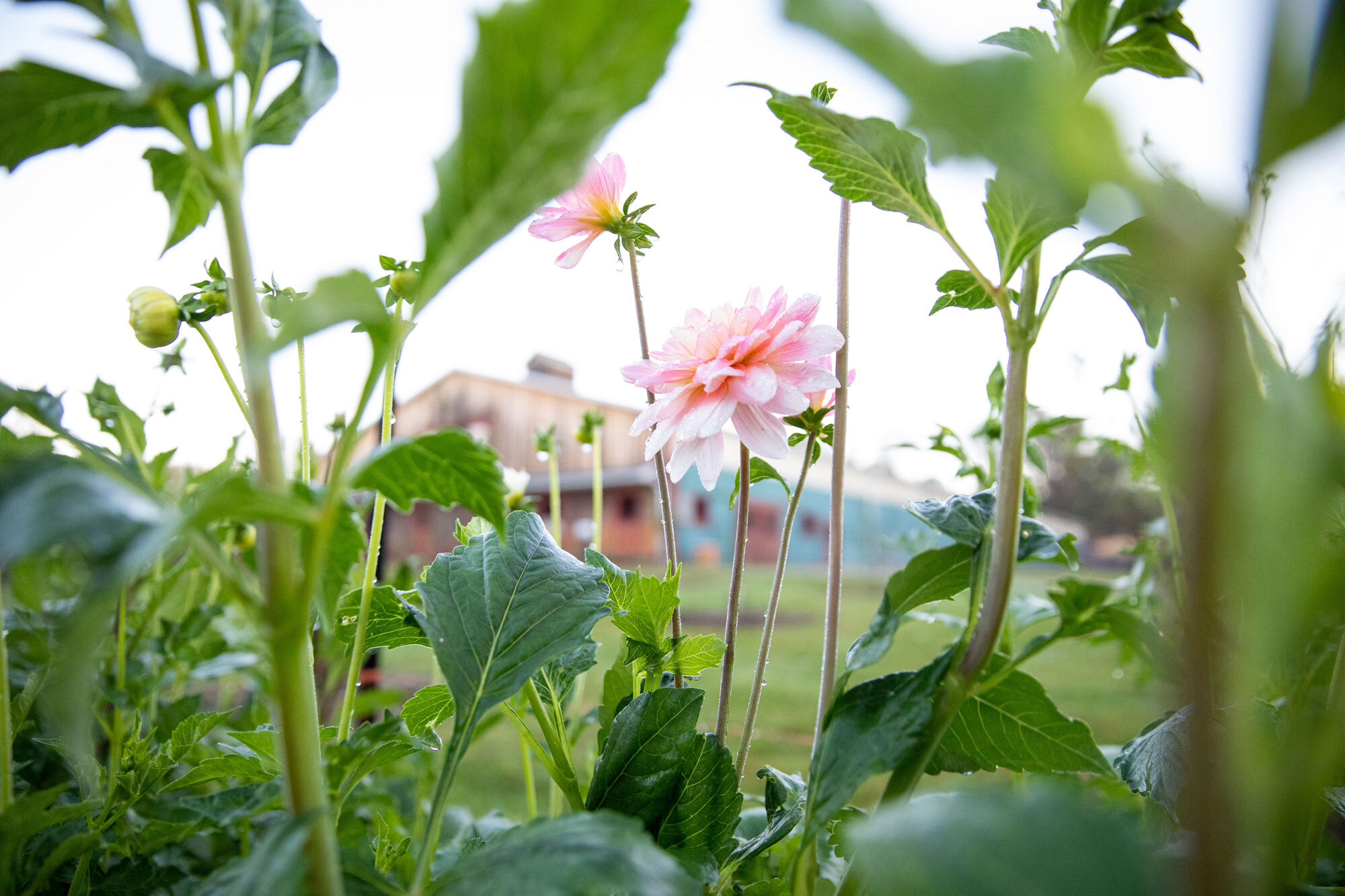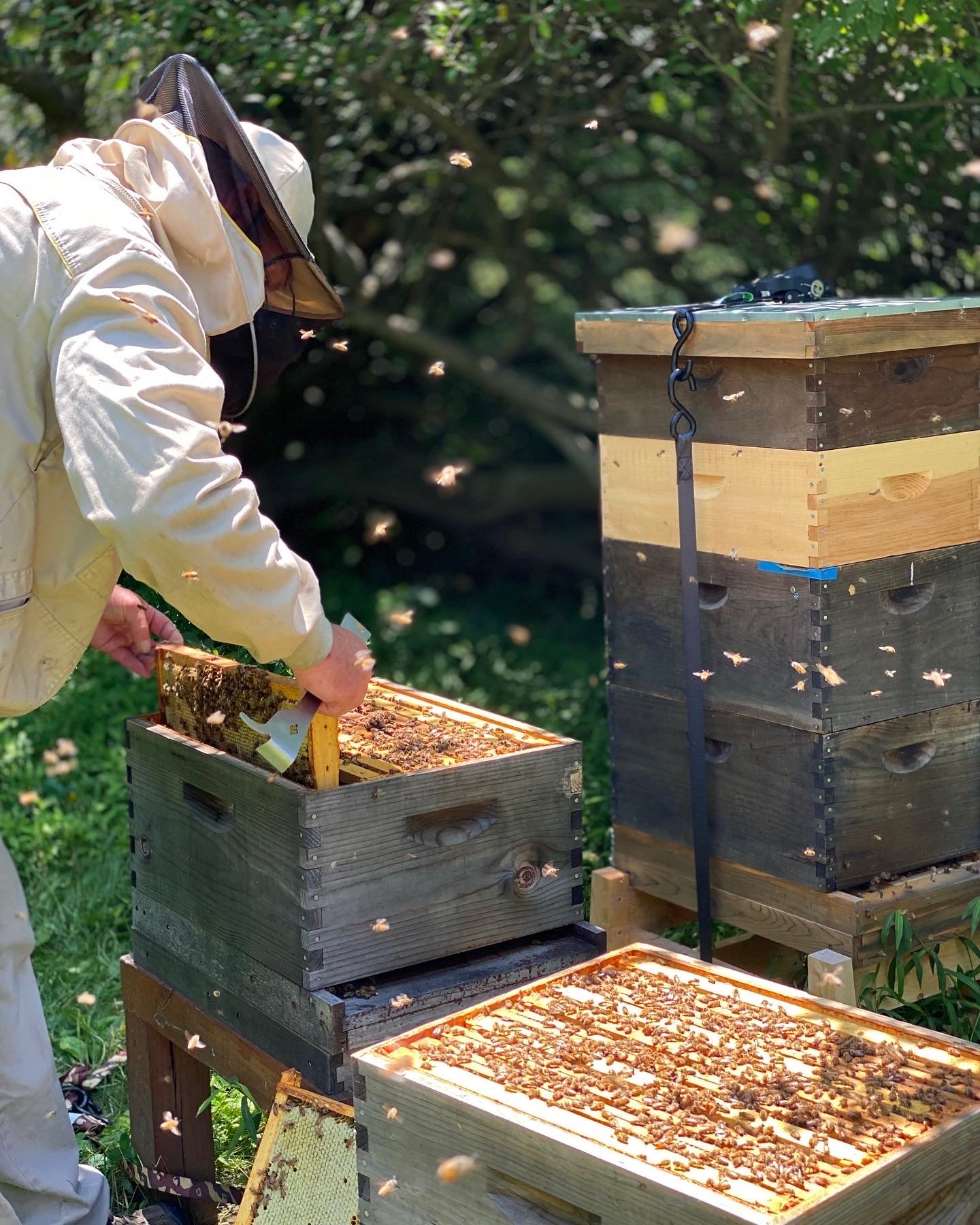
About Six Dutchess Farm
My name is Jennifer Kouvant, and, together with my husband Hans Li, we run Six Dutchess Farm. We are first-generation farmers, brought together by a shared love of the land and a profound belief in the healing powers of nature and community. Like so many things in life, our farm story is one of discovery, renewal and new beginnings.
2001 | the beginning
Six Dutchess came to life in the aftermath of September 11 when Hans purchased the farm as a healing space, a refuge, and as a re-set with nature at a very dark, turbulent time for New Yorkers.
Just a 90-minute drive from the City, the farm offered a world of peace and comfort, and it got Hans thinking of ways to give back through the land.
Back in 2001, Six Dutchess was a private family farm with a farrier’s workshop, multiple grazing pastures and a large indoor riding arena attached to the barn. Through six barn stall windows, the horses diligently kept watch over the farm and its orchard, and that’s how Six Dutchess got its name. As both an architect and an avid rider, Hans got to work renovating the 19th-century farmhouse, barn, and indoor riding arena which provided a beautiful new setting for a boutique horse boarding facility.
2008 – 2014 | discovery
In 2008, Hans and I met and decided to build a life together, and that inspired us to imagine all the ways the farm could grow with us. Six Dutchess remained a happy home for both horses and humans until 2015, when we knew it was time to explore a different kind of farming.
When we walked through the farm and pastures, we could see the soil erosion from years of heavy horse treading and grazing, and even the farm orchard—which hardly bore any fruit, year-after-year—seemed ready for change. The land was calling out for a better way to manage its many parts and restore a balance within the farm ecosystem, so we started to explore what a healthy, thriving, small-scale 12-acre farm could look like. We wanted to know how we could better serve the land, and how the land, in turn, could offer its generous rewards back to our family and community. In essence, we wanted to learn how to build a healthier, balanced relationship with Nature.
2015-2017 | renewal
It took us several years to re-imagine the farm while visiting other working and teaching farms like Stone Barns Center for Agriculture, Shelburne Farms, and Ballymaloe Cookery School School & Gardens and diving deep into the principles of sustainability.
We learned that through diversified livestock and rotational grazing, we could regenerate our soil, improve animal health, and even put carbon back into the soil. And we discovered the power of pollination. By building a small honeybee apiary within our 12 acres, the honeybees began to pollinate our trees and crops and, within a few years, that sad, unproductive orchard gave us more fruit than we could ever imagine.

We started to re-think what we planted on the farm, and why and how nourishing wild pollinators, beneficial insects, migrating birds, and grazing livestock in nature was just as important as nourishing humans.
Step-by-step, we replaced decaying trees and shrubs with edible landscaping. That once-sad peach and pear orchard—now flush with fruit—led to an even bigger, ever-expanding soft fruit orchard, followed by a native nut orchard and perennial pollinator garden.
For annual crops, we started a program of crop rotation and cover cropping for herbs and vegetables and stopped using any and all types of synthetic fertilizers and chemical pesticides; we used our sheep and chickens instead to help us naturally fertilize the land and create our own compost, which worked wonders on our fields.
And once we could see all the parts coming together, we introduced majestic flowers to the mix, both wildflowers for the pollinators to enjoy, and seasonal cut flowers, for our community.
2018 – PRESENT | NEW BEGINNINGS
Slowly, we began to put all the parts into place for a new regenerative approach to agriculture, working in step with nature, and not against it, and sharing every step of the way through social media, a weekly Sunday Farm Note, and educational classes and videos from the farm.
We hope our farm can be a special place of learning and comfort for you. You can count on us to provide you with beautiful, sustainably-grown seasonal flowers, nourishing natural fibers from lovable Swedish sheep, delicious foods and fun + meaningful ways to connect with nature and your community of local growers.
Farm Values
Farming, at its best, is deeply rooted in community and in caring about the earth, about the animals, and about each other. We strive to embody these values in all that we do.











